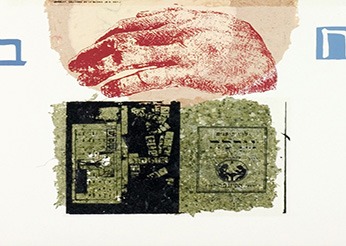Métodos de estudio y enseñanza del Talmud en las Escuelas Centrales de Aprendizaje en el siglo XIX en Europa del Este y Alemania
DOI:
https://doi.org/10.17851/1982-3053.13.25.243-263Palabras clave:
Estudios judíos, Educación, Europa, ReligiónResumen
Este artículo trata sobre los diversos métodos de enseñanza del Talmud de Babilonia, utilizado en las escuelas centrales de aprendizaje judío en Europa del Este y Alemania hace unos ciento cincuenta años. Presentaremos los diversos métodos de enseñanza característicos de estas escuelas de aprendizaje y formas de enseñar Talmud, características de los métodos, desde ese período hasta el método moderno en las primeras instituciones académicas en Berlín. El método de enseñanza moderno adoptó la forma innovadora de investigación académica, que estaba dando sus primeros pasos, pero en la práctica sentó las bases para la investigación académica realizada hasta el día de hoy.
Descargas
Referencias
ASAF, Yedidya. Criticized Criticism – Orthodox Alternatives to Wissenschaft des Judentums 1873-1956. Jerusalem: Bialik Institute, 2013.
ASSAF, Simcha. Mekorot le-Toldhot ha-Hinukh be-Yisrael. New York: The Jewish Theological Seminary of America, 2009.
BAR-ILAN, Meir. Rabban shel Israel. New York: Ram, 1942.
BAT-YEHUDA, Geʾula. Eish ha-Meʾorot. Jerusalem: Mossad HaRav Kook, 1985.
BEN-SASSON, Haim Hillel. Eishiyuto shel ha-Gra ve-Hashpaʻato ha-Historit. Zion. Jerusalem, n. 31, p. 39-86; p. 197-214, 1966.
BERLIN, Zvi Naftali. Sheiltot de-Rav Ahai Gaon, Kidmat ha-ʻAmek. Jerusalem: Mossad HaRav Kook, 1955.
BLOCH, Abraham Isaac. Shiurei Daʻat. Jerusalem: Peninei Daas, 2001.
BREUER, Mordechai. Ohalei Torah: Ha-Yeshiva, Tokhnita ve-Toldoteha. Jerusalem: Merkaz Zalman Shazar, 2003.
BROWN, Benjamin. Ha-Hazon Eish: Ha-Possek, ha-Maʾamin ve-Manhig ha-Mahpekha ha-Haredit. Jerusalem: Magnes, 2011.
DIMITROVSKY, Haim. ʻAl Derekh ha-Pilpul. In: LIEBERMAN, Saul (Ed.). Sefer ha-Yovel Likhvod Shalom Baron. Jerusalem: Ha-Akademia ha-Amerikanit le-Madaʻei ha-Yahadut, 1975. p. 111-182.
ETKES, Immanuel. Yakhid be-Doro: Ha-Gaon mi-Vilna – Demut ve-Dimui. Jerusalem: Merkaz Zalman Shazar, 1988.
ETKES, Immanuel. Yeshivot u-Batei Midrashot. Jerusalem: Merkaz Zalman Shazar, 2006.
ETKES, Immanuel, TIKOCHINSKI, Shlomo (Ed.). Yeshivot Lita: Pirkei Zikhronot. Jerusalem: Merkaz Zalman Shazar, 2004.
GANZ, David. Zemach David. Warsaw: Ganz, 1878.
GREENSPAN, Shlomo Nachman. Melekhet Maḥshevet - B. London: Greenspan, 1955.
HOFFMANN, Zvi David. Melamed le-Hoʻeil. New York: Frankel, 1954.
KAHANA, Menahem. Meḥkar ha-Talmud ba-Universita ve-ha-Limud ha-Massort ba-Yeshiva. In: ______. Beḥvlei Massoret u-Tmura. Reḥovot: Kivunim, 1990. p. 113-142.
KATZ, Eliezer. Ha-Hatam Sofer, Rabbi Moshe Sofer, Hayav ve-Yetzirato. Jerusalem: Mossad HaRav Kook, 1960.
KATZBURG, Netanel. Yeshivat Freshburg Kavim li-Dmuta. Sinai. Jerusalem, no. 24, p. 352-358, 1949.
KETZ, Chana. Mishnat ha-Natziv. Jerusalem: Ketz, 1990.
KLEINERMAN, Shmuel. Likutei ha-Gra. Jerusalem: Ha-Teḥiya, 1963.
KOOK, Abraham Isaac. Eigrot ha-Reya. Jerusalem: Mossad HaRav Kook, 1960.
KOOK, Abraham Isaac. Maʾamare ha-Reya. Jerusalem: Keren Golda Katz, 1984.
KRAMER, Avraham. Kramer, Leib Yehuda. Hakdama [le-Perush ha-Gra]. In: KARO, Yosef. (Ed.). Shulḥan Arukh, Oraḥ Haim. Tel Aviv: Tal-Man, 1977. p. 1a-b.
LAMM, Norman. Torah Lishma. Jerusalem: Mossad HaRav Kook, 1972.
LANDA, Yehezkel. Doresh le-Zion. Jerusalem: Be-Perush u-ve-Remez, 1969.
LICHTENSTEIN, Aharon. Ha-Gisha ha-Mussagit-Briskait be-Limid ha-Torah: Ha-Shita ve-ʻAtida. Netuʻim. Alon Shvut, no. 18, p. 9-38, 2013.
MERTZBACH, Shmuel. Makor Rishon newspaper. Jerusalem: Makor Rishon, August 24, 2012.
MIRSKY, Kalman Samuel. Mossadot Torah be-Eropa be-Binyanam u-v-Hurbanam. New York: Ogen, 1956.
PERKINS, David, SWARTZ, Robert. The Nine Basics of Teaching Thinking. In: COSTA, Arthur, BELLANCA, James, FOGARTY Robin (Ed.). If Minds Matter: A Foreword to the Future. Palatine, IL: Skylight Publications, 1991. p. 53-69.
REINES, Isaac Yaʻakov. Hotam Tokhnit. Jerusalem: Reines, 1933.
SHUCHAT, Raphael. Yahasso shel ha-Gra la-Pilpul ve-Beʻayat ha-Massorot be-ʻAl Peh. Shana be-Shana. Ramat-Gan, n. 1, p. 337-348, 1998.
SOFER, Moshe. Hidushei Hatam Sofer ha-Shalem, Shabbat. Jerusalem: Makhon Hatam Sofer, 2006.
SOFER, Moshe. Hatam Sofer Responsa – Introduction to Yore Deʻa, Pituḥei Hotam by Shimon Sofer. Jerusalem: Institute for Book Publishing of the Hatam Sofer, 2007.
SOFER, Shlomo. Hut ha-Meshulash. Jerusalem: Makhon Daʻat Sofer, 2000.
SOLOMON, Norman. The Analytic Movement: Hayyim Soloveitchik and His Circle. Atlanta, Ga.: Scholars Press, 1993.
STAMPFER, Shaul. Ha-Yshiva ha-Litaʾeit be-Hithavuta. Jerusalem: Merkaz Zalman Shazar, 2005.
SWARTZ, Robert, PARKS, Sandra. Infusing the Teaching of Critical and Creative Thinking into Content Instruction. Pacific Grove, Calif.: Critical Thinking Press & Software, 1984.
WALFISH, Avraham. Bet ha-Midrash ve-ʻOlam ha-Meḥkar - Skira. Shana be-Shana. Ramat-Gan, no. 1, p. 375-379, 1996.
WOSNER, Shai. Hashiva Mishpatit be-Yeshivot Lita: ʻEyunin be-Mishnato shel ha-Rav Shimon Shkop. Jerusalem: Magnes, 2016.
WUNDER, Meir. Ha-Yeshivot be-Galitzia. Moriya. Jerusalem, n. 18, p. 95-100, 1992.
ZATZ, Shlomo Ari. Zeved Tov. New York: Yeshiva University Press, 2008.
ZEVIN, Yosef Shlomo. Eishim ve-Shitot. Tel Aviv: Zioni, 1958.
ZINOVITZ, Moshe. Eishim ve-Kehilot. Tel Aviv: Rockenstein-Zinovitz, 1990.
ZUR, Uri. Ha-yesh Kavim Kochaniyim bi-Dmuto shel Hillel ha-ʻAnvetan. Shemaʻatin. Bne Brak, no. 152-153, p. 169-179, 2003.
ZUR, Uri. The Tripartite Structure of the Sugyot: Studies in Tractate Eruvin of the Babylonian Talmud. Ariel: Ariel University Press, 2016.
ZUR, Uri, YOGEV, Yitzhak. Sugya le-Dugma le-Horaʾat ha-Talmud be-Shitat ha-Mizug be-Batei ha-Sefer ha-Malkhti-Dati. Shemaʻatin. Bne Brak, n. 141-142, p. 77-96, 2000.
Descargas
Publicado
Número
Sección
Licencia
O autor cede os direitos autorais à revista Arquivo Maaravi. Os direitos de licenciamento utilizados pelo periódico estão sob a Licença Creative Commons do tipo atribuição BY: são permitidos o compartilhamento (cópia e distribuição do material em qualquer meio ou formato) e adaptação (remix, transformação e criação de material a partir do conteúdo assim licenciado para quaisquer fins, inclusive comerciais.











